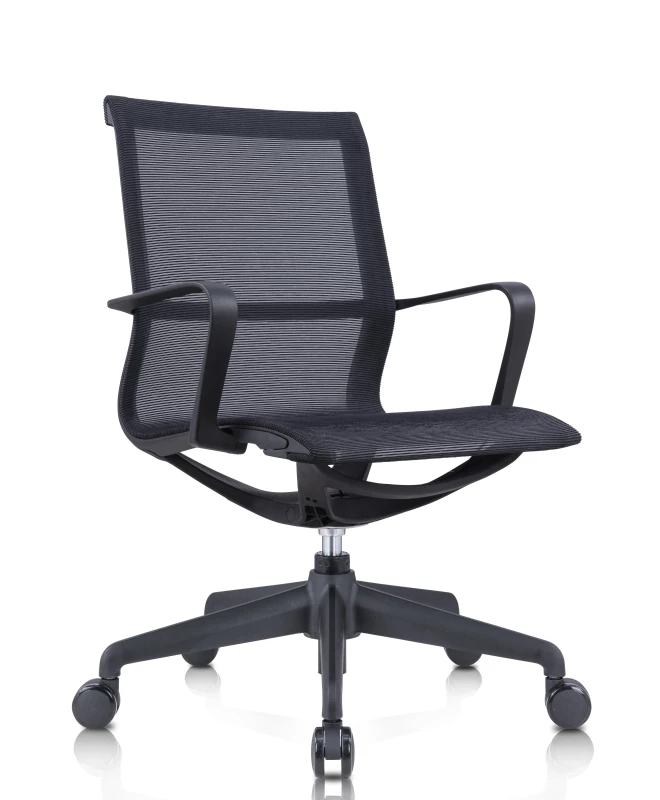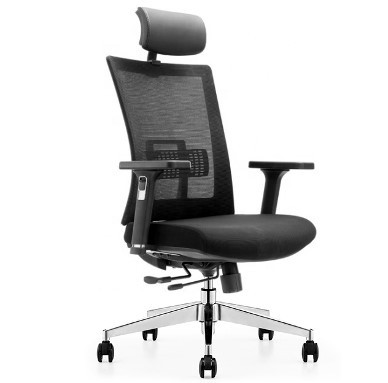
Sleek Office Chairs That Match Minimalist Interiors
Introduction
Minimalist design isn't just about removing clutter—it's about creating a space where every element is intentional. In such interiors, each item must be both functional and aesthetically aligned with the environment. Office chairs, as centerpieces of workspaces, play a critical role. A sleek chair that supports the body while echoing the simplicity of your décor can subtly elevate the entire room. Whether you’re outfitting a home office or a collaborative studio, the right chair should be elegant, unobtrusive, and supportive. This guide walks through what makes an office chair a good fit for minimalist spaces.
1. Clean, Streamlined Silhouettes
Minimalist interiors benefit from furniture with smooth, uninterrupted lines. Chairs with sleek profiles and tapered forms integrate effortlessly into such spaces. Avoid bulky or over-padded designs that visually disrupt the calm of your workspace. Streamlined frames reflect minimalist values of clarity and order.
2. Neutral and Matte Color Palettes
Monochrome tones like black, grey, or white pair well with minimalist settings. Chairs in these tones serve as subtle complements to natural wood desks, white walls, or concrete flooring. Matte finishes add to the understated elegance, avoiding the glare of glossy plastics or chrome overload.
3. Hidden or Subtle Adjustments
Ergonomic function is essential, but visible levers or knobs can clash with clean design. Sleek chairs integrate these elements subtly—either under the seat or behind paneling—so functionality doesn’t interrupt the form. The best designs are those where comfort doesn’t compromise visual harmony.
4. Mesh Back Designs for Lightness
Mesh chairs bring a visual lightness to minimalist spaces. They avoid the visual weight of full-upholstered backs and blend seamlessly into modern work environments. The mesh texture also adds dimension without being visually loud.
5. Ergonomic Features Without Excess
Minimalist doesn’t mean sacrificing comfort. Chairs designed for wellness still fit within minimalist guidelines when the features—like lumbar support or tilt mechanisms—are embedded seamlessly into the frame. The result is a chair that looks simple but feels sophisticated.
6. Slim Armrest Profiles
Thick, padded armrests often contradict minimalist style. Instead, opt for chairs with sleek or even optional armrests. These maintain a clean look while supporting the arms during long sessions. Some minimalist chairs offer removable or barely-there armrests to match different setups.
7. Understated Base and Casters
A bulky base can distract from the elegance of the upper design. Minimalist chairs use simple five-point bases with smooth-rolling casters that don’t draw attention. Black or monochrome finishes on the base help the chair stay grounded in the overall interior theme.
8. Versatility Across Room Styles
A sleek chair should not only match a minimalist office but adapt to other rooms too. Whether it’s a workspace tucked in the living room or a dedicated creative nook, the chair’s neutral tone and clean lines make it easy to move around without clashing with existing décor.
9. Proportions That Balance the Space
Minimalist offices often rely on open floor plans. The chair’s size should feel proportionate—neither dominating the room nor getting lost in it. Compact yet ergonomic designs provide structure without adding visual clutter.
10. Subtle Textures and Fabric Choices
Minimalist doesn't mean flat or boring. Chairs that feature slight texture variations—such as a woven mesh or matte-finish plastic—add visual interest while remaining subtle. The right finish gives the chair character without making it a focal point.
Additional Considerations When Choosing a Minimalist Chair
11. Integration With Desk Style
Consider how the chair’s design pairs with your desk. A floating desk or wall-mounted workstation benefits from chairs with leggy, open bases. On the other hand, heavy wood desks pair better with chairs that are visually grounded. Match both in color and form for continuity.
12. Natural Light Interaction
Chairs in lighter tones reflect more natural light, helping small or minimally lit spaces feel more open. If your office is naturally bright, a white or grey chair enhances that sense of clarity and airiness. If it’s darker, go with matte black or charcoal for balance.
13. Minimal Assembly and Maintenance
Simplicity should extend to the setup and care of the chair. Models that arrive mostly assembled and require minimal upkeep align with minimalist principles. Clean lines are easier to wipe down and maintain, keeping your workspace neat and efficient.
14. Multi-Purpose Use
Minimalist spaces often double in function—living room today, workspace tomorrow. A sleek office chair that can transition between work and leisure roles adds flexibility. Chairs with a soft yet sturdy look blend into both professional and relaxed settings.
15. Footprint Efficiency
In minimalist interiors, space is often purposefully open. Chairs with smaller footprints keep walkways clear and maintain flow in the room. Even without sacrificing comfort, a well-designed seat can tuck neatly into your workspace when not in use.
16. No Excess Branding
A minimalist design thrives without visible labels, logos, or stitched brand marks. Choose chairs with subtle or hidden branding to avoid breaking the visual calm. The focus should remain on the form, not the manufacturer.
17. Customization That Doesn’t Overcomplicate
While some adjustability is essential, minimalist chairs don’t need dozens of knobs and sliders. Stick to basics: height, tilt, and lumbar adjustments. The goal is intuitive comfort—not mechanical complexity.
18. A Chair That Complements Silence
Minimalism often carries a meditative quality. Chairs with quiet gliding wheels, noise-free reclining, and non-squeaky joints preserve the peaceful atmosphere. Silence supports focus and helps the space feel less busy, both visually and aurally.
19. Sustainability and Ethical Design
Many who embrace minimalist design also value sustainability. Choose chairs made with recyclable materials, low-waste manufacturing, or modular components. These options align with both environmental and design values, adding to the chair’s long-term appeal.
20. Timeless Over Trendy
Minimalist design is by nature timeless. Look for chairs that avoid trendy shapes or flashy finishes. Instead, select enduring styles that still look fresh a few years down the road. This makes the investment last—both in utility and aesthetics.
Recommended Products

-
Finmon Mesh Office Chair – Black
Designed with a sleek black mesh back, compact structure, and refined silhouette, this chair fits seamlessly into minimalist interiors while offering long-session comfort.
-
Sujaan Mesh High Back Ergonomic Chair
Modern in style and ergonomically sound, this high-back mesh chair features clean lines, height adjustability, and subtle design details ideal for a minimalist office.
Final Thoughts
Minimalist interiors are built on the idea that less is more—but comfort should never be sacrificed in the process. The best office chairs for minimalist spaces strike a fine balance between simplicity and support. With clean lines, soft finishes, and functional ergonomics, these chairs quietly enhance the aesthetic of your workspace while keeping you comfortable and focused.
Frequently Asked Questions
Q1: Can ergonomic chairs still look minimalist?
Yes. Many modern ergonomic chairs are designed with clean lines, subtle finishes, and compact features, allowing them to blend well with minimalist interiors while offering full support.Q2: What color is best for a minimalist chair?
Neutral shades like black, grey, white, and taupe are ideal. Matte finishes are also preferred over glossy ones to reduce visual distractions and match minimalist design palettes.Q3: Are mesh chairs suitable for minimalist décor?
Absolutely. Mesh adds a modern, breathable, and visually lightweight feel that complements minimalist settings. Its subtle texture brings depth without cluttering the aesthetic.Q4: How do I avoid chairs that feel too bulky in a minimalist space?
Look for chairs with narrow profiles, slim armrests, and understated bases. Avoid heavy padding or large frames, and prioritize chairs with a smaller footprint.


